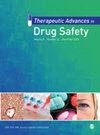围手术期药剂师提供的服务对临床重要结果的干预和影响:系统回顾和荟萃分析
IF 3.4
3区 医学
Q2 PHARMACOLOGY & PHARMACY
引用次数: 0
摘要
背景:围手术期是一个独特而具有挑战性的环境,需要协调复杂的流程,并需要整个护理团队的参与。目的:批判性地评估、综合并介绍药剂师主导的干预措施的特点及其对围手术期临床重要结果的影响的现有证据。方法:我们检索了从索引开始到 2023 年 9 月的 PubMed、Embase 和 CINAHL。纳入的研究比较了药剂师主导的干预措施与围手术期常规护理相比对临床重要结果(如住院时间、再入院率)的有效性。两位独立审稿人使用 DEPICT-2(药剂师干预特征描述工具)提取数据,并使用克罗批判性评估(CCAT)进行质量评估。结果:25 项研究符合条件,其中 20 项(80%)采用非对照研究设计。大多数干预措施由多个部分组成,并在围手术期持续进行。干预内容包括临床药学服务(如药物管理/优化、药物协调、出院咨询)和对医护人员的教育。虽然一些研究对干预措施的制定和过程进行了少量描述,但只有一项研究报告了干预措施制定的理论基础。汇总分析显示,与常规护理相比,药剂师护理对住院时间(11 项研究;SMD -0.09;95% CI -0.49-0.15)和全因再入院(8 项研究;OR 0.60;95% CI 0.39-0.91)有显著影响。结论:药剂师指导的干预措施可有效改善围手术期的临床重要结果;但大多数研究的质量一般。这些研究没有利用理论来制定干预措施;因此,目前尚不清楚理论衍生的干预措施是否比没有理论元素的干预措施更有效。未来的研究应优先开发和评估以整个手术护理路径为目标的多方面理论药师干预措施。本文章由计算机程序翻译,如有差异,请以英文原文为准。
Interventions and impact of pharmacist-delivered services in perioperative setting on clinically important outcomes: a systematic review and meta-analysis
Background:The perioperative arena is a unique and challenging environment that requires coordination of the complex processes and involvement of the entire care team. Pharmacists’ scope of practice has been evolving to be patient-centered and to expand to variety of settings including perioperative settings.Objectives:To critically appraise, synthesize, and present the available evidence of the characteristics and impact of pharmacist-led interventions on clinically important outcomes in the perioperative settings.Design:A systematic review and meta-analysis.Methods:We searched PubMed, Embase, and CINAHL from index inception to September 2023. Included studies compared the effectiveness of pharmacist-led interventions on clinically important outcomes (e.g. length of stay, readmission) compared to usual care in perioperative settings. Two independent reviewers extracted the data using the DEPICT-2 (Descriptive Elements of Pharmacist Intervention Characterization Tool) and undertook quality assessment using the Crowe Critical Appraisal (CCAT). A random-effect model was used to estimate the overall effect [odds ratio (OR) for dichotomous and standard mean difference (SMD) for continuous data] with 95% confidence intervals (CIs).Results:Twenty-five studies were eligible, 20 (80%) had uncontrolled study design. Most interventions were multicomponent and continuous over the perioperative period. The intervention components included clinical pharmacy services (e.g. medication management/optimization, medication reconciliation, discharge counseling) and education of healthcare professionals. While some studies provided a minor description in regards to the intervention development and processes, only one study reported a theoretical underpinning to intervention development. Pooled analyses showed a significant impact of pharmacist care compared to usual care on length of stay (11 studies; SMD −0.09; 95% CI −0.49 to −0.15) and all-cause readmissions (8 studies; OR 0.60; 95% CI 0.39–0.91). The majority of included studies ( n = 21; 84%) were of moderate quality.Conclusion:Pharmacist-led interventions are effective at improving clinically important outcomes in the perioperative setting; however, most studies were of moderate quality. Studies lacked the utilization of theory to develop interventions; therefore, it is not clear whether theory-derived interventions are more effective than those without a theoretical element. Future research should prioritize the development and evaluation of multifaceted theory-informed pharmacist interventions that target the whole surgical care pathway.
求助全文
通过发布文献求助,成功后即可免费获取论文全文。
去求助
来源期刊

Therapeutic Advances in Drug Safety
Medicine-Pharmacology (medical)
CiteScore
6.70
自引率
4.50%
发文量
31
审稿时长
9 weeks
期刊介绍:
Therapeutic Advances in Drug Safety delivers the highest quality peer-reviewed articles, reviews, and scholarly comment on pioneering efforts and innovative studies pertaining to the safe use of drugs in patients.
The journal has a strong clinical and pharmacological focus and is aimed at clinicians and researchers in drug safety, providing a forum in print and online for publishing the highest quality articles in this area. The editors welcome articles of current interest on research across all areas of drug safety, including therapeutic drug monitoring, pharmacoepidemiology, adverse drug reactions, drug interactions, pharmacokinetics, pharmacovigilance, medication/prescribing errors, risk management, ethics and regulation.
 求助内容:
求助内容: 应助结果提醒方式:
应助结果提醒方式:


